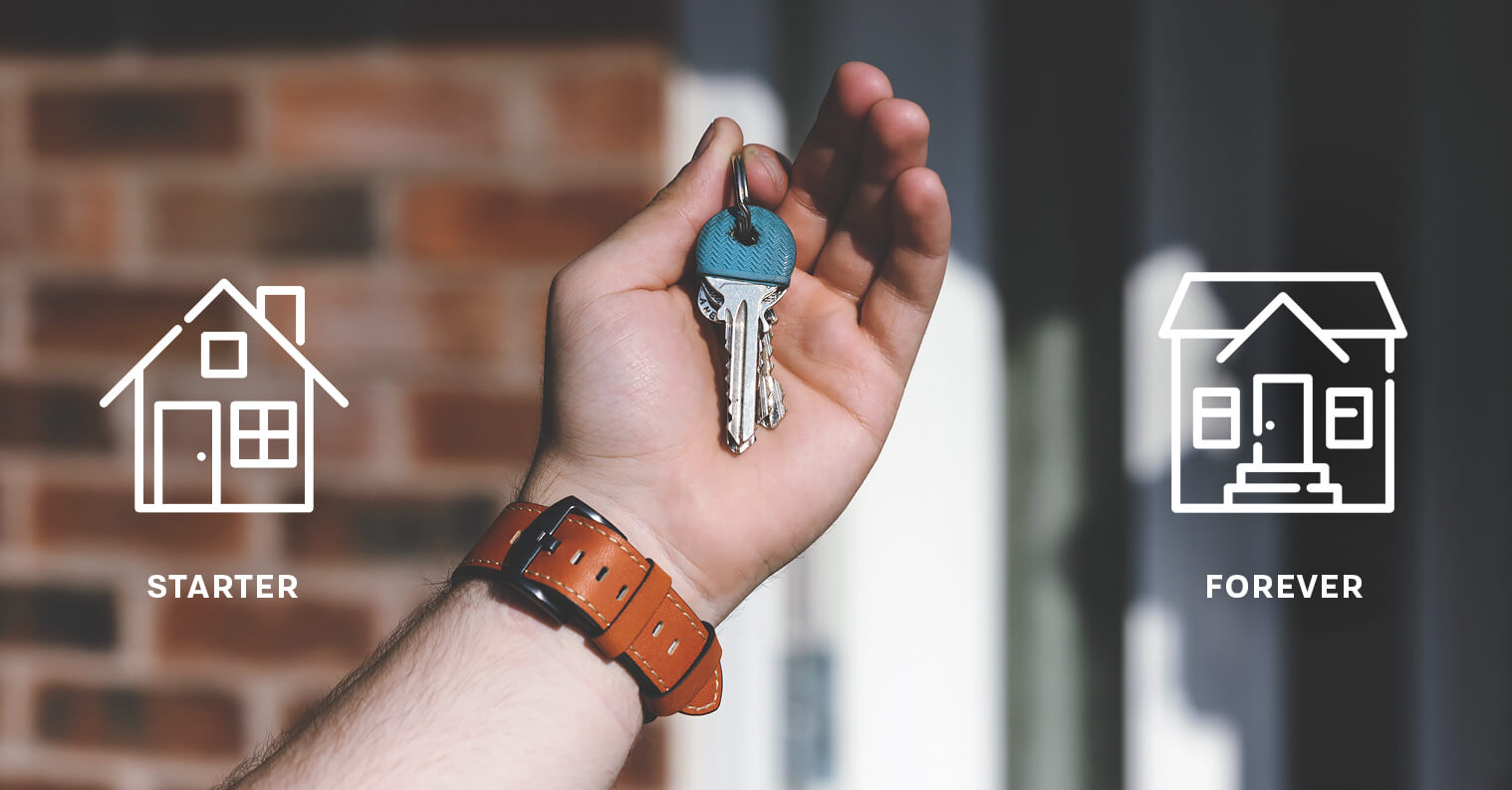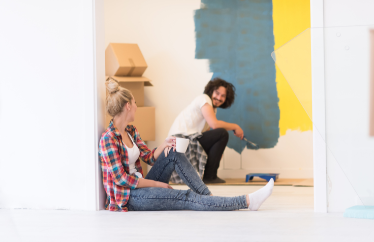Starter home? Or skip straight to a forever home?
Thinking about buying your first home? For a long time, Americans would follow the same pattern: save up, buy a one- or possibly two-bedroom house, build equity in that home by making consistent, timely mortgage payments for five to seven years, then sell that house for a profit that you can use toward a larger, longer-term home. It was a sensible blueprint that got adults in the markets even though they knew they’d likely grow out of their home before a decade was up.
In reality, that formula doesn’t work for everyone. In fact, the 2016 Bank of America Homebuyer Insights Report revealed that 75% of first-time homebuyers would prefer to bypass the starter home and purchase a place that will meet future needs – even if it means waiting to save more and keeping the same place until retirement. Discover why buying your forever home off the bat may be the right move below.
In fact, the 2016 Bank of America Homebuyer Insights Report revealed that 75% of first-time homebuyers would prefer to bypass the starter home and purchase a place that will meet future needs – even if it means waiting to save more…CLICK TO TWEET
Changing times
While we’re walking down memory lane, let’s remember a time when one decent income was enough to buy a nice family home. Now, two professional incomes aren’t always enough to afford any home in certain markets. Even homes of the starter variety are getting more expensive, and that’s when they’re available at all. Newer homebuyers are also more likely to have student loan debt. Paired with higher job turnover and delayed life milestones like having children later in life, it would make sense to build a substantial nest egg and achieve higher income levels, then invest in a more permanent abode once the future is clear.
Volatile markets
The Great Recession left Americans feeling vulnerable. Interest rates are still relatively low, which may make it a good time for aspiring homeowners to secure lower monthly payments on a bigger home. More affordable mortgages give people more buying power. Plus, the Fed has stated that they will rise rates at least three more times by the end of 2019. The burst housing bubble proved that homes aren’t as guaranteed an investment as previously believed. Buying long-term rather than short-term means there’s a better chance of riding out unpredictable real estate market fluctuations.
Financial resources
There are, of course, ways to get around problems like intimidating asking prices. One misconception holding homebuyers back from purchasing a forever home straight away is that you need at least 20% of a home’s value upfront for a down payment. In fact, there are several federal and state-level first-time homebuyer programs that significantly lower the upfront costs of homeownership and make the American dream both more accessible and affordable. The rise of homesharing networks also make it easier to afford a home as you grow into it. Earnings from renting spare rooms can help cover mortgage payments.
Before you decide
The decision to buy a home isn’t easy. It’s also a stressful, complicated process you may not want to repeat more than once in your life. Also, immersing yourself in a community can make it harder to leave. It really pays to think beyond the five-year mark, but that should still be the minimum length of time you place to stay in a home when buying it. A real estate agent or financial planner can help you look into the future and craft a realistic plan.
Of course, that’s assuming you have a rough idea. If you can only give vague answers to questions about where you want to live, what you want to do, and if you want to have children, you may not be ready for your forever home. Maybe you won’t even get a forever home in your lifetime. Buying property in the interim would mean you’re building equity or at the very least credit while you decide. You may not be able to afford the perfect house in the perfect neighborhood, but it’s only normal to make sacrifices when you buy a home.
If it came to it, you could build additions as your family grows and updates as your income grows until your starter home turns into a forever (or at least longer-term) home. Pulling the trigger at all could help you get where you want to be faster. Just create a plan about how you’ll unload a home before you buy it in case you have to move on earlier than planned. You wouldn’t want one home purchase to negatively impact your ability to purchase another.
Ultimately, deciding whether to skip the starter home will depend on your specific financial and personal situation. You won’t be happy crammed into a small home before you’re ready but it wouldn’t be smart to buy a big home if you can’t afford the numerous costs. No matter what you decide, don’t stretch yourself financially or settle too much emotionally. As always, you’ll want to strike a balance between affordability and the home that makes sense for your family.




